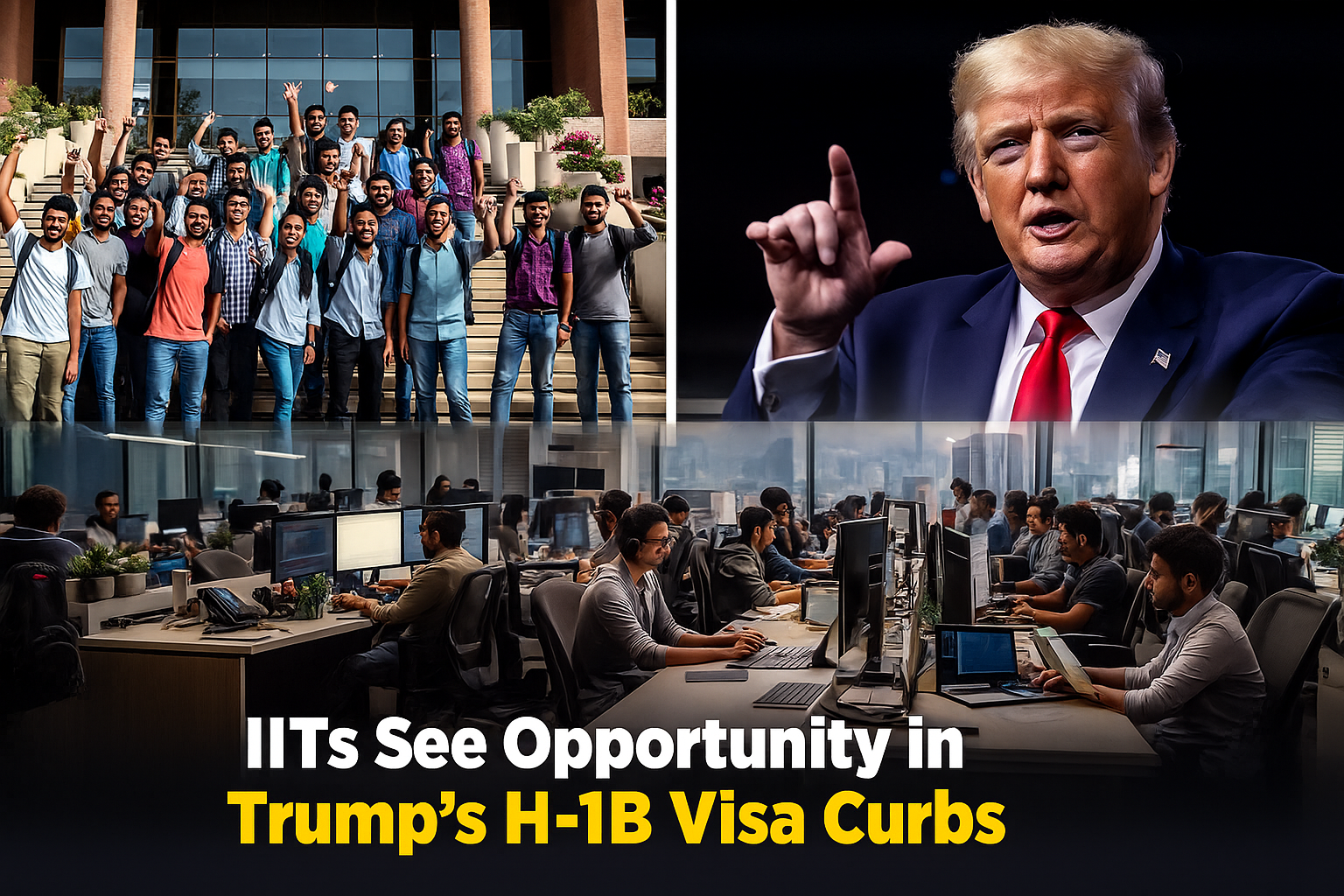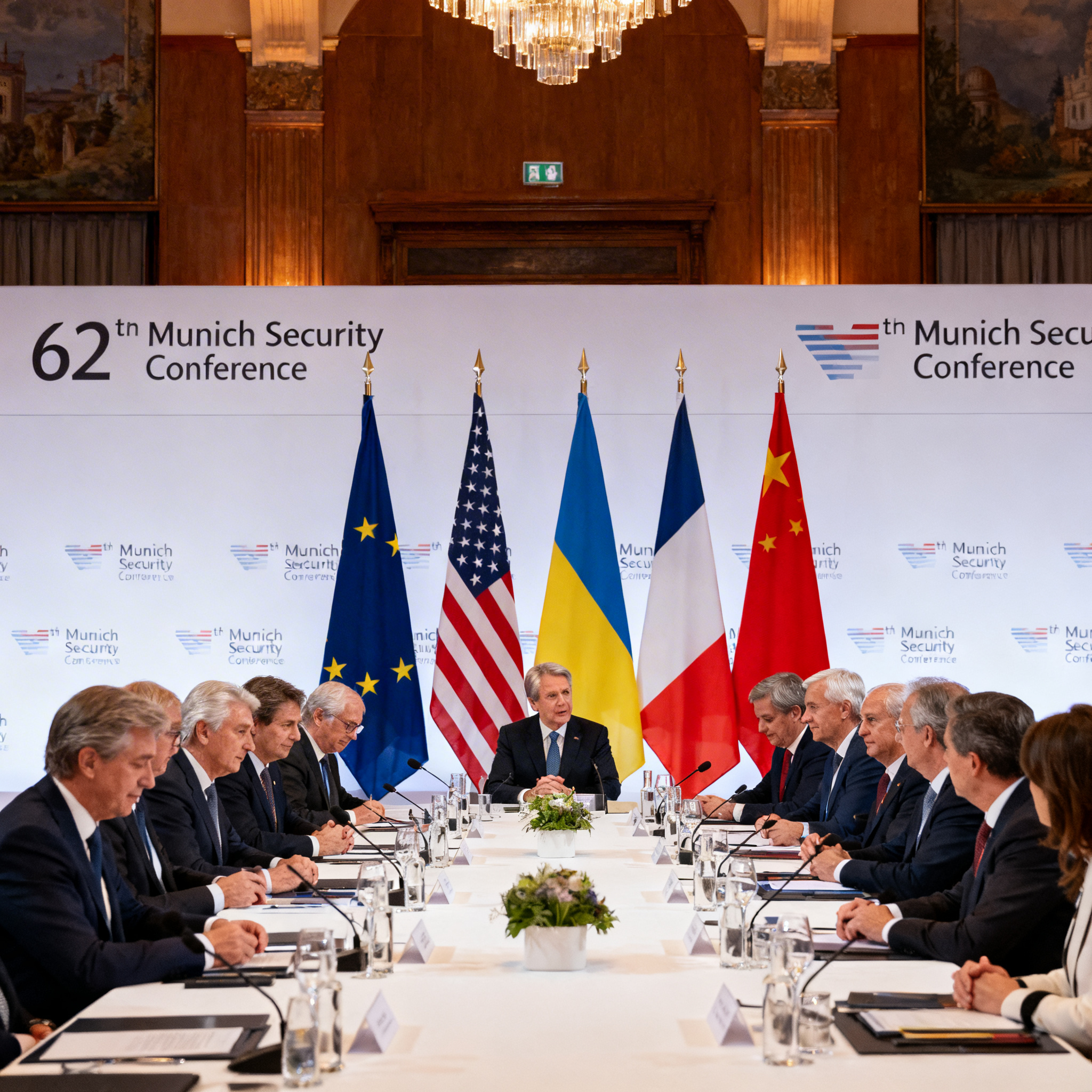IITs See Opportunity in Trump’s H-1B Visa Curbs | How India’s Top Tech Institutes Are Benefiting

The United States has long been the dream destination for thousands of Indian engineering graduates, especially those from the Indian Institutes of Technology (IITs). From Silicon Valley start-ups to global tech giants, IITians have historically benefited from the H-1B visa program — a gateway to professional and research opportunities in the U.S.
However, with the Trump administration tightening H-1B rules and signalling stricter immigration policies, the landscape is changing. Surprisingly, this shift is creating new opportunities for IITs and India’s tech ecosystem.
The H-1B Crackdown: What’s Changing?
The Trump administration has pushed for:
- Higher scrutiny on H-1B applications
- Preference for “highest-paid” candidates
- Tighter definitions of specialty occupations
- Reduced chances for entry-level international tech workers
While this raises concerns for students planning to work abroad, IITs see the situation differently.
How IITs Are Turning Challenges into Opportunities
1. Boost in On-Campus Opportunities
With the H-1B path becoming uncertain, many global tech companies are expanding their operations in India. This means:
- More on-campus placements
- Higher-paying roles in Indian offices
- Broader exposure to global projects without leaving the country
Big firms like Google, Amazon, and Microsoft are strengthening their Indian tech hubs to retain top talent locally.
2. Rise in Domestic Entrepreneurship
IITs have always been known for producing entrepreneurs, but visa restrictions are accelerating this trend.
- Start-up incubators at IITs (like IIT Madras Research Park, IIT Bombay SINE, IIT Delhi’s incubation cell) have seen more activity.
- Students are now choosing to build products for India’s booming digital market rather than migrating abroad.
- Increased government support for “Make in India” and tech startups is also fueling this shift.
3. Growth in Research & Advanced Programs
With international opportunities becoming limited, many IIT graduates are choosing:
- MTech and PhD programs in India
- Research roles in Indian institutions
- Fellowships in AI, robotics, energy, and biosciences
This strengthens India’s research output and technological capabilities.
4. Stronger Industry–Academia Collaborations
Companies that previously recruited Indian talent to move abroad are now:
- Setting up R&D centres in IIT campuses
- Partnering for joint research initiatives
- Offering industry-led courses and internships
This gives IIT students direct exposure to global technology standards without needing an H-1B visa.
5. Reverse Brain Drain: A New Trend
Many Indian professionals in the U.S. face uncertainty due to policy changes and long Green Card backlogs. This has triggered:
- Return of highly skilled engineers
- Increase in mentorship for IIT startups
- Growth in India’s tech leadership pool
Their return brings experience, global networks, and investment — all beneficial for India’s tech future.
Why This Shift Could Be Good for India
The H-1B restrictions may seem negative at first glance. But in the long run, they offer several advantages:
- India retains more of its top technical talent
- Domestic tech companies grow stronger
- India becomes a global innovation hub
- More job creation within the country
- Stronger startup culture and investment flow
In short, the “H-1B barrier” is turning into an opportunity wall for India.
Conclusion
Trump’s H-1B visa curbs may have tightened the pathway for Indian graduates aiming for U.S. jobs, but India’s IITs are using this moment to turn challenges into opportunities. With stronger campus placements, expanding research ecosystems, rising entrepreneurship, and booming industry partnerships, IITs are strengthening their position as world-class hubs of innovation — without relying on foreign pathways.
India’s tech future looks more self-reliant, dynamic, and locally rooted than ever.
FAQs
1. Why are Trump’s H-1B visa curbs affecting IIT graduates?
The stricter H-1B rules make it harder for entry-level international tech workers to get U.S. jobs, which affects many IIT graduates who aim to work abroad after graduation.
2. How are IITs benefiting from these restrictions?
IITs are seeing increased campus hiring in India, greater industry collaborations, more startup activity, and a rise in domestic research as students choose Indian opportunities.
3. Are global tech companies expanding in India because of H-1B issues?
Yes. Companies like Google, Amazon, Microsoft, and Meta are expanding India-based engineering teams to retain top Indian talent without relying on visas.
4. Will entrepreneurship grow among IIT students?
Yes. With fewer foreign job opportunities, more IIT graduates are building startups in India’s growing digital and AI ecosystem.
5. Does this lead to reverse brain drain?
Yes. Many Indian professionals in the U.S. are returning due to immigration uncertainty and bringing global experience back to India.


